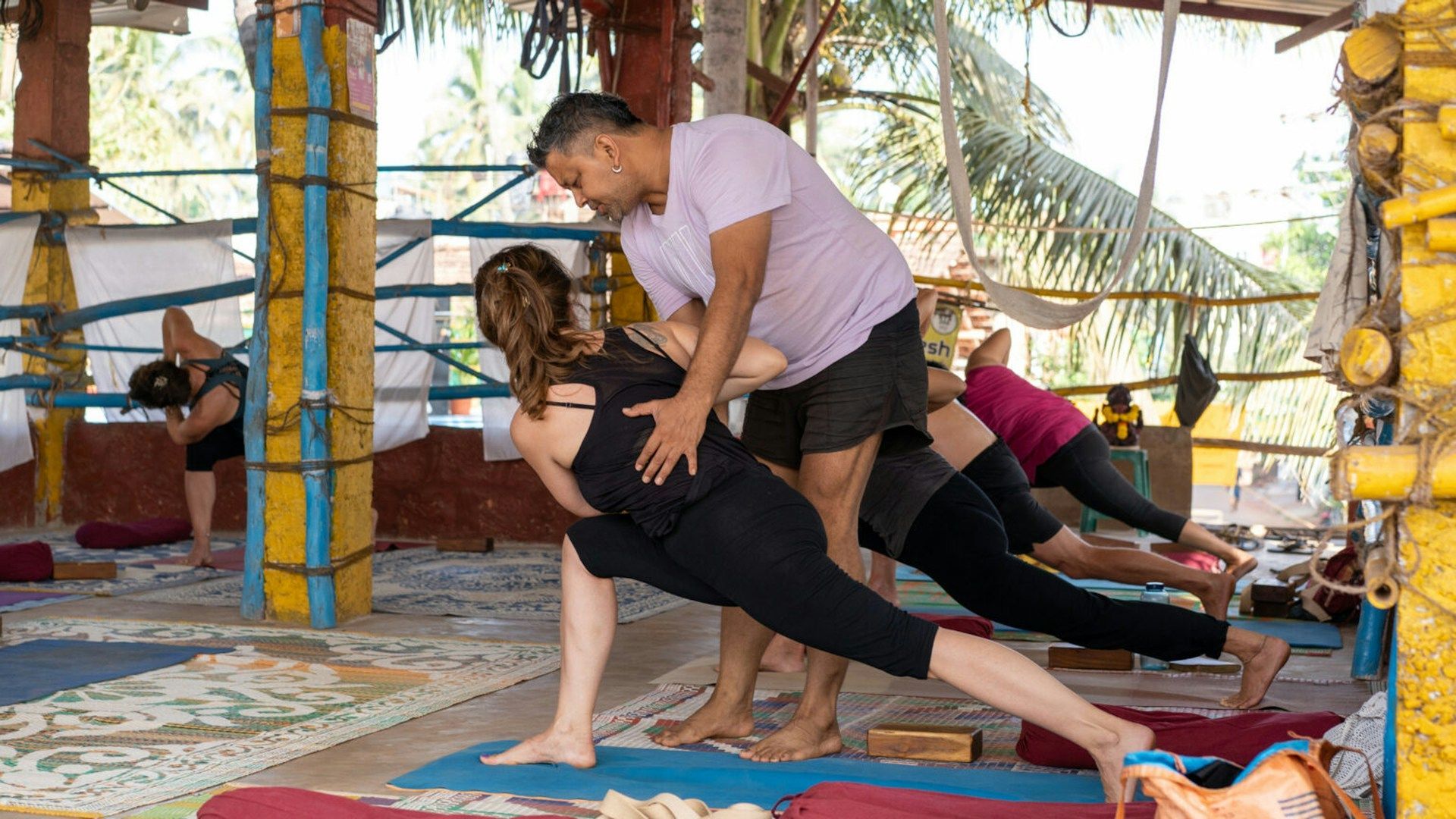Gratitude: The Antidote for Toxic Positivity
Here's how to handle it kindly when well-intended words hurt
Do the phrases “cheer up,” “everything happens for a reason, “ and “look on the bright side” have the opposite effect, making your mood darker, not lighter? Even well-intended statements can raise your hackles, leaving you feeling like you’re swimming in a sea of toxic positivity. However, gratitude can be your liferaft and the ultimate antidote. Here’s why.
What Is Toxic Positivity, Anyway?
While there’s no official dictionary definition of toxic positivity, the crucial element that makes it so harmful is that it ignores reality. It’s like sprinkling unicorn glitter on a steaming fresh pile of doggie doo-doo. It doesn’t clean up the mess, it doesn’t prevent you from stepping in it, and it doesn’t make anything better. If anything, it makes things feel worse. There you are, at your lowest, and now you have to summon up the energy to smile and say, “Yeah, that’s much prettier,” while you’ve still got a disgusting pile of dung beneath all the sparkles.
Toxic positivity minimizes your situation and the pain it causes. It dismisses your emotions and ignores the fact that trauma impacts
the same brain regions as physical pain, leaving an indelible mark on your lived experience. Toxic positivity feels like sitting in a physician’s office awaiting a diagnosis and having the doctor emerge with balloons and a big smile, “Congratulations! It’s cancer! But it will all be okay — isn’t that great?”
Do People Mean to Be Toxic?
Well-intended but dismissive positivity can turn toxic in a second, more insidious way. It can strain the relationships, the connections with others you need to make it through difficult times. Because here’s the thing — most people who engage in toxic positivity don’t mean you any harm. Although it’s impossible to know what another person is thinking, many are simply responding in the way they learned to react in such situations, echoing phrases they’ve heard others use.
Sure, there are those intentionally manipulative sorts, but most folks genuinely want you to feel better. They just don’t know what else to say. Therefore, to avoid the second arrow of toxic positivity, accepting their words with grace is the best course for keeping the relationship intact.
I know. It sucks. There you are at your lowest, and you have to be the bigger person. Yeah. Yet if you don’t want an argument or, worse, a severed relationship, on top of your current woes, receiving their words with grace and forcing a “thanks” with as genuine a smile as you can muster avoids adding unwanted conflict to your poo pile.
Why Gratitude is the Antidote for Toxic Positivity
While you should be kind to people, even the toxic positivity crowd, that doesn’t mean internalizing what they say. The outside world may invalidate your feelings and experiences, but you can validate yourself. Remember, you can silently resolve to keep your distance from the speaker as much as possible, at least until you feel up to a genuine smile. Doing so can be a powerful act of self-compassion if their words wound you, even if they were well-intended.
However, there’s always something for which to give thanks, no matter how small. Gratitude springs from a fountain of authenticity and honesty. Authenticity and honesty are pivotal to me as an autistic individual, but everyone can detect the scent of BS, which inevitably weakens the impact of the statement on the listener and fosters mistrust. I explained it to my therapist like this:
- Toxic positivity was someone saying, “Everything’s going to be fine! You’re healthy (I was not, a direct denial of my reality). You’re smart. Something will come up (when rent was due in two days — yeah, I’m sure I’ll find the perfect job and receive a paycheck in that time).”
- Genuine positivity was me saying, “It’s a beautiful day. These wildflowers are gorgeous. I’m grateful to feel the sun on my skin, to have eyes to see and legs to walk. I’m going to show my appreciation by doing something positive and life-affirming, like going on a hike after submitting a few job applications.”
The latter statement is true — without denying my lived experience or minimizing a horrific situation. However, it redirected my attention to something truly positive. There’s nearly always something real you can give thanks for, even if it’s being alive and conscious to draw another breath long enough to pet your beloved cat.
Validating yourself and practicing gratitude after exposure to toxic positivity can sometimes be transformative. It contributed to how
Only in Sedona Yoga came to be.
In my darkest hour, someone said to me, “Oh, cheer up! You live in the most beautiful place on Earth. How bad can it be?” While I didn’t appreciate their dismissiveness, it sparked the beginning of an idea.
“Wait a minute,” I thought. I did live in a stunning location. How could I share that enchantment with folks who might never get to visit while contributing something worthwhile to humanity? Marrying my experience as a yoga guide and group fitness instructor with the jaw-dropping backdrops all around me seemed natural. I had no idea I’d end up healing myself along the journey — perhaps that’s an example of the power of genuine positivity.
How to Focus on Gratitude: 3 Exercises to Try
You don’t have to search too hard to find people telling you to practice gratitude, but what does that look like? Here are some exercises to tune into what makes you thankful, either as an antidote to toxic positivity or simply to redirect rumination and negative thoughts toward something genuinely positive.
1. Journal
The fabulous thing about journaling is that you can throw the rules of writing out the proverbial window. Journaling might look like:
- Writing a list of things for which you give thanks
- Drawing a picture of something or someone you love and are grateful to have in your life
- Cutting pictures out of newspapers, ads, magazines, etc., collage style. Whether you add descriptions is up to you.
- Writing a letter to your higher power or future or past self describing what makes you smile.
- Listing the hardships you have overcome in the past and applauding your strength.
2. Somatic Expressions of Gratitude
If you’re like me and feel literally everything in your body, somatic expressions of gratitude may raise your mood and vibration. For example:
- Put on your favorite tunes and break into ecstatic dance or go for a run or hike to give thanks that you can move. If you need something slower and more indulgent, try a relaxing restorative yoga session, such as Only in Sedona Yoga’s Sober Saturday series.
- Create a gift for someone you are grateful for. Ninja-level — do this for yourself. For example, the other day, I used my writing time to pen a poem that was bursting to come out of me instead of working on an article. You might knit yourself a new scarf or blanket, arrange flowers in a decorative vase to decorate your table, or paint a new picture to hang on your wall.
- Volunteer. Oodles of studies support the health benefits of volunteering, and it’s a surefire way to remind yourself that while things may be bad, other people are also struggling. Plus, you build your sense of agency, reinforcing the idea that your actions make a positive difference. This latter is crucial for good mental health, as it battles maladaptive thoughts like “nothing I do even matters.”
3. Phone a Friend
A genuine connection with another human being can be incredibly healing. Instead of calling someone to vent, think of someone whose presence in your life makes it better. Give them a call simply to let them know that you appreciate them. Doing so shifts your awareness and strengthens your friendship. They may even reply by sharing how grateful they are to have you in their life, leaving you both feeling better than before your chat.
Gratitude Is the Antidote to Toxic Positivity
Toxic positivity can feel like nails on a chalkboard when you’re in a dark place. However, it’s important to remember that most people don’t mean to raise your hackles — they simply don’t know what else to say. Fortunately, you can self-soothe after such encounters by remaining calm, kind, and in control, then validating yourself through gratitude.
Gratitude is the antidote to toxic positivity because it doesn’t minimize or dismiss what’s wrong in your life. Instead, it gently redirects your attention to what is right with it. Gratitude improves your reality without denying it. Try one of the exercises above to lift your spirits the next time someone’s well-meant but invalidating words leave you feeling worse, and help yourself feel better.











